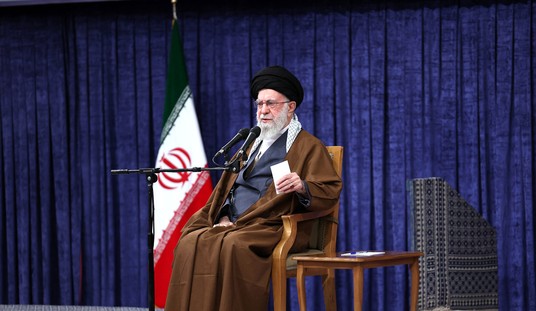Even though Congress is running out of time to push through a negotiated solution to avoid going over the fiscal cliff, the Senate has a UN treaty on the schedule for a ratification vote Tuesday.
And opponents say it could leave society’s most vulnerable under the thumb of an international agreement that’s not as innocuous as it sounds.
“You’d think this issue can transcend politics. The Disabilities Convention is a non-discrimination treaty that will extend essential protections for millions of disabled Americans when they leave our shores,” Senate Foreign Relations Committee Chairman John Kerry (D-Mass.) wrote in the Huffington Post today. “…Approving the treaty now won’t require any changes whatsoever to American law — none, zero, zip. It simply requires other countries to improve their own record on disability rights — in effect taking our gold standard here at home and exporting it to countries that have never heard of disability rights or have never changed their laws to accommodate people with disabilities.”
President Obama signed the Convention on the Rights of Persons with Disabilities in 2009, sending it to the Senate for ratification where it has remained since. Currently 125 countries plus the European Union are parties to the convention.
“The UNCRPD should be of great concern for conservatives,” Sen. Mike Lee (R-Utah) told PJM today. “From American sovereignty, to parental rights, to the lives of the unborn, it could lead to limiting our individual freedoms and expanding the role of government in our lives.”
The treaty establishes a new international entity, the Committee on the Rights of Persons with Disabilities, which will consist of a maximum 18 “experts.” Countries will answer to the committee on everything from statistics collection to national implementation and monitoring.
One article in the treaty states that “children with disabilities shall be registered immediately after birth.” Other articles stipulate that the “best interests of the child” as determined by the state should be a primary consideration in all matters concerning the disabled.
The Home School Legal Defense Association put out a call last week for its supporters to vigorously oppose the treaty, saying this language “would override the traditional fundamental right of parents to direct the education and upbringing of their child with special needs.”
At a press conference with HSLDA last week, former Sen. Rick Santorum (R-Pa.) called it “a direct assault on us and our family to hand over to the state the ability to make medical determinations and see what is in the best interest of the child.”
Abortion opponents also point to Article 23, which says, “The rights of persons with disabilities to decide freely and responsibly on the number and spacing of their children and to have access to age-appropriate information, reproductive and family planning education are recognized, and the means necessary to enable them to exercise these rights are provided.”
Signatories of the treaty are required to “provide persons with disabilities with the same range, quality and standard of free or affordable health care and programmes as provided to other persons, including in the area of sexual and reproductive health and population-based public health programmes.”
This summer, when the treaty was still in the Foreign Relations Committee, Sen. Marco Rubio (R-Fla.) proposed language saying the treaty “does not create any abortion rights.” Only the committee’s Republicans voted for the amendment, and it failed.
Sen. John McCain (R-Ariz.), a proponent of the treaty, said on the Senate floor this evening that the treaty wouldn’t affect current abortions laws with its nonbinding recommendations.
“With respect to abortion, this is a disabilities treaty and has nothing to do with abortion,” he said. “Trying to turn this into an abortion debate is bad politics and just wrong.”
In the end, three Republicans joined the committee’s 10 Democrats in pushing the treaty to the floor: Sens. Dick Lugar (R-Ind.), John Barrasso (R-Wyo.), and Johnny Isakson (R-Ga.).
Two-thirds of the chamber must vote yes to ratify the treaty. The procedural vote last Tuesday to move forward with the treaty vote fell short of the threshold needed for ratification, with 61 yea votes (including nine Republicans) and 36 nays.
An even greater hurdle to overcome than objections about the treaty’s content may be objections about the treaty’s timing.
In September, 36 senators sent a letter to Senate Majority Leader Harry Reid (D-Nev.) and Minority Leader Mitch McConnell (R-Ky.) asking that no treaties be brought to the floor during the lame-duck session.
“In the way of a Presidential election, we do not believe that this is an appropriate time for considering these matters,” they wrote. “…The writers of the Constitution clearly believed that all treaties presented to the Senate should undergo the most thorough scrutiny before being agreed upon.”
“We also believe that other issues, most importantly addressing our nation’s debt crisis, are higher priorities than any treaties currently awaiting ratification.”
That includes another pet treaty of Kerry’s, the UN’s Law of the Sea Treaty.
Treaty opponents also note that the protections for the disabled are already covered under the Americans with Disabilities Act in this country.
Kerry argues that the U.S. needs to be a partner at the UN in bringing other countries up to snuff.
“The Senate floor has been the place where speeches are given about American exceptionalism, the question now is whether even in an age of polarization and gridlock we can use the Senate floor to do something that makes the Senate worthy of the word ‘exceptional,'” Kerry wrote.
“Never mind that we’ve been studying this treaty for the last year. Never mind that in this session we will deal with major tax and budget issues — so obviously people accept that we can do important things here in the months of November and December. Since the 1970s alone, the Senate has approved treaties during lame-duck sessions a total of nineteen times! There is nothing special or different about lame-duck sessions.”









Join the conversation as a VIP Member